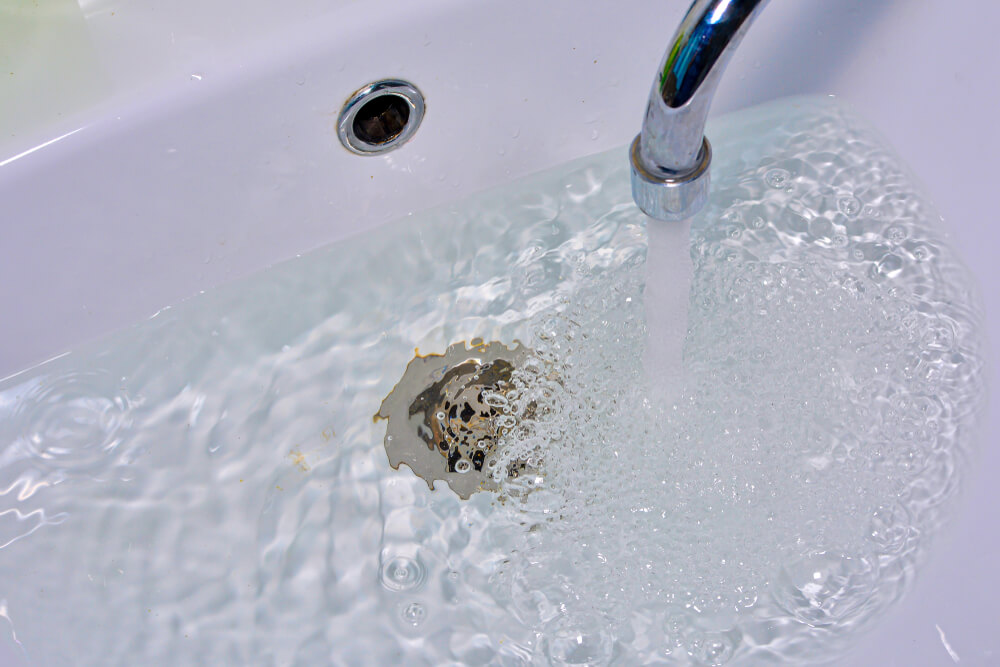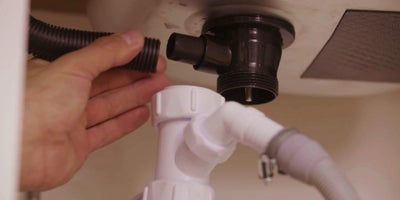This article underneath pertaining to 7 Ways To Fix A Slow-Draining Sink Before You Call A Plumber is without a doubt stimulating. Read it for yourself and decide what you think about it.

Introduction
We have actually all existed: You're cleaning your teeth or washing your hands, and you notice the water merging in the sink. Instead of rapidly swirling down the tubes, it sticks around, transforming your once-refreshing early morning routine right into a small overload scene. A slow-draining sink isn't simply annoying; it's often an indication of bigger pipes problems lurking beneath the surface area. Fortunately is that many slow-draining sinks can be fixed with a little knowledge, a few fundamental tools, and some perseverance. Ready to tackle this project head-on? Allow's roll up our sleeves and dive right in.
Understanding the Sources Of a Slow-Draining Sink
Before you begin poking around in your pipelines, it helps to know what may be creating the slowdown. Comprehending the origin makes it easier to select the appropriate fix.
Tools and Products You'll Require
The right devices make all the difference. Luckily, you will not require a fully stocked plumbing's van to get the job done.
Step-by-Step Guide to Repairing a Slow-Draining Sink
Currently, let's enter the nitty-gritty. This detailed process will certainly guide you via easy methods to restore your sink's drainage.
Action 1: Remove and Clean the Stopper
Usually, the stopper (that small plug you lower to obstruct water) is the initial perpetrator. Remove it thoroughly and clean off any type of hair or crud entraped around its base. Wash it extensively prior to placing it back in position.
Action 2: Make Use Of a Bettor to Displace Particles
Got that bettor all set? Placement it over the drainpipe and provide it a few company pumps. The concept is to develop suction that can loosen up any clog. If you see bits of particles floating up, you're on the right track.
Step 3: Attempt a Drainpipe Serpent or Wire Wall Mount
If the bettor doesn't suffice, it's time to bring out the drainpipe snake. Delicately feed it right into the drain and spin as you go. You might really feel some resistance-- that's likely the clog. Maintain twisting and drawing until you eliminate the obstruction. If you don't have a drainpipe snake, a corrected cord hanger can operate in a pinch.
Tip 4: Use a Do It Yourself Drain Cleanser
An all-natural cleaner made from baking soft drink and vinegar can break down residual gunk. Pour half a cup of baking soda into the drain, followed by half a mug of vinegar. Allow it fizz for around 15 mins, then flush with hot water. This chemical reaction usually does wonders for minor blockages.
Tip 5: Rebuild and Check the Sink
Placed everything back with each other and run the tap. Does the water now swirl down the tubes at a respectable speed? If yes, provide on your own a pat on the back. If not, don't anguish-- there are still a couple of more tricks up your sleeve.
Essential Devices for Do It Yourself Fixes
A plunger is your best beginning point. A little, sink-sized plunger develops suction that can remove minor obstructions. For more consistent blockages, a drainpipe snake (occasionally called a plumbing professional's auger) works wonders. A set of handwear covers, a flashlight, and maybe a set of protective goggles are likewise useful.
Advised Cleaning Solutions
Moderate meal soap and hot water can aid break down greasy build-up. A mix of baking soda and vinegar is a time-tested natural remedy, and enzymatic cleansers use an even more environment-friendly method. Maintain chemical drainpipe cleaners as a last option, as they can be rough on your pipes.
Common Wrongdoers Behind Slow Drainage
So, what's obstructing things up? Normally, it's a combination of day-to-day particles-- think hair, soap scum, toothpaste residue, and remaining food bits. Gradually, these tiny bits collect and cling to the pipe walls, progressively narrowing the flow and making it harder for water to travel through. In some cases, natural resource from difficult water can also include in the substance, producing the best tornado for stubborn obstructions.
When is it Time to Act?
If you discover the water draining slower than typical, it's a good concept to intervene sooner rather than later. Waiting too long can bring about finish blockages, unpleasant odors, or even pipe damages. If the water takes more than a couple of secs to remove after shutting off the tap, consider it a red flag and get ready to put on your do it yourself hat.
Safety And Security First: Preventative Measures and Prep work
Prior to you launch into unclogging mode, think of security. You're managing potentially filthy water and debris, so slip on a set of gloves. If you're using chemical cleaners, ensure the room is well-ventilated and follow the instructions on the label.
Safety Gear and Work Space Configuration
Put down some old towels or dustcloths around the sink area to catch sprinkles. Clear away any kind of products that could get in your means, like soap dispensers or toothbrush owners. Make certain you have excellent illumination-- order a flashlight if required.
Alternative Methods for Stubborn Clogs
Not all clogs are developed equivalent. If your sink still declines to comply, think about these alternative remedies.
Sodium Bicarbonate and Vinegar Approach
We already touched on this, however it's worth keeping in mind once again. This mild, green approach is safer than chemical cleaners and commonly fairly reliable.
Chemical Drainpipe Cleansers
Enzyme-based cleaners make use of all-natural microorganisms to absorb raw material. They're an exceptional option if you're wanting to avoid harsh chemicals. Just bear in mind, they may take a bit longer to function their magic.
Chemical Drainpipe Cleaning Company: Advantages And Disadvantages
Chemical cleansers can blast with difficult clogs quickly, however they're not without drawbacks. They can create warm and fumes, damage pipelines if used exceedingly, and posture environmental risks. Utilize them sparingly, and constantly comply with the directions carefully.
Safety Nets to Keep Your Sink Flowing
Avoidance is the very best remedy. By taking on a couple of easy routines, you can keep your sink from slowing down to begin with.
Regular Cleansing Routines
Clean down the sink container and fixture area routinely. Remove hair or food particles before they have a possibility to wash down the drainpipe.
Avoiding Damaging Materials Away
Reconsider before dumping coffee premises, grease, or fibrous veggie scraps down the sink. These offenders cling to pipeline wall surfaces, developing blockages in time.
Regular Upkeep Checks
Arrange a quick month-to-month assessment. Run warm water via the sink for a couple of minutes, taking note of the circulation. If it appears slow-moving, act quick prior to it ends up being a full-on obstruction.
When to Call an Expert Plumbing
Occasionally, regardless of exactly how tough you try, that block just won't move. That's when it's time to generate the pros.
Signs That Suggest a More Serious Problem
If your sink drains pipes slowly despite multiple efforts, or if you observe water backing up in various other components (like your shower or toilet), you might have an extra major plumbing concern lurking deeper in the system.
Balancing DIY Efforts with Expert Aid
While DIY can conserve you money and provide a sense of success, there's no embarassment in calling an expert. A specialist plumbing can evaluate your entire pipes arrangement, making sure there's no underlying damage or long-lasting problem that could cost you much more in the future.
Comparing Expenses and Long-Term Solutions
Prior to making a decision, think about the big picture. An inexpensive, quick fix may address the trouble briefly, however buying a more permanent solution might save you money and stress in the future.
Evaluating the Costs of DIY vs. Expert Fixes
DIY fixes commonly cost little more than the rate of a bettor or a container of baking soft drink. Expert services, on the other hand, featured a price yet may prevent repetitive issues and costly repair services later on.
Purchasing Top Quality Fixtures and Upgrades
If your sink's layout contributes to frequent clogs, it might be worth upgrading to higher-quality components or altering the plumbing format. Consider this a financial investment in your house's capability and convenience.
Verdict
A slow-draining sink can feel like a minor irritability, however it's often an indication that your plumbing requires a little tender loving care. By understanding the source, utilizing the right tools and strategies, and committing to simple preventive measures, you can maintain your sink moving easily. And when all else falls short, never ever wait to employ a specialist-- your home's plumbing deserves the investment in treatment and upkeep.
Three Common Ways to Fix a Slow Drain
Baking Soda Method
Boil a full pot of water. Measure out cup of baking soda and pour it down the drain. Then take cup of the magical cleansing substance known as white vinegar and drop that down there too. Allow the mixture to fizz in the drain for five minutes as the vinegar and baking soda combine. Now dump in that whole pot of boiling water. This combination of cleaning substances should clear out anything that is causing your sink to drain slowly. If it doesn t...
Zip-It
If the baking soda method doesn t clear out your drain, it may be because a significant amount of hair and/or other debris has collected there and you need to remove it. Purchase a Zip-It tool at any home improvement or hardware store and insert it into your drain. It will catch any collected hair or debris that s blocking the flow of water. Pull it out. If it s got a big clump of hair, etc. on the end, you ve probably got your culprit.
Drain Cleaner
If these methods don t work, there is the standard drain cleaner that you can also buy in a hardware store or even your local grocery store. It s better if you can use a household solution, but these drain cleaners often work in a pinch. They re very simple to use. You generally just dump them in your drain and wait. If even this method is not effective, it may be time to call the plumber.
https://www.mrrooter.com/oneida/about-us/blog/2017/july/three-common-ways-to-fix-a-slow-drain/

As a passionate person who reads on 7 Ways To Fix A Slow-Draining Sink Before You Call A Plumber, I think sharing that segment was smart. Enjoyed our blog entry? Please quickly share it. Let other people find it. I praise you for your time. Return soon.
Give Me A Quote!
Comments on “Simple Fixes For A Slow-Draining Sink”